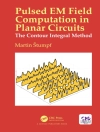Today’s real-world problems and applications in sensory systems and target detection require efficient, comprehensive and fault-tolerant multi-sensor allocation. This book presents the theory and applications of novel methods developed for such sophisticated systems. It discusses the advances in multi-agent systems and AI along with collaborative control theory and tools. Further, it examines the formulation and development of an allocation framework for heterogeneous multi-sensor systems for various real-world problems that require sensors with different performances to allocate multiple tasks, with unknown a priori priorities that arrive at unknown locations at unknown time. It demonstrates how to decide which sensor to allocate to which tasks when and where. Lastly, it explains the reliability and availability issues of task allocation systems, and includes methods for their optimization.
The presented methods are explained, measured, and evaluated by extensive simulations, and the results of these simulations are presented in this book.
This book is an ideal resource for academics, researchers and graduate students as well as engineers and professionals and is relevant for various applications such as sensor network design, multi-agent systems, task allocation, target detection, and team formation.
Table des matières
Introduction.- Multi-agent task allocation.- Multi-Sensor task allocation systems.- Evaluation methodology.- Single-layer multi-sensor task allocation system.- Extended examples of single-layer multi-sensor systems.- Dual-layer multi-sensor task allocation system.- Extended example of dual-layer multi-sensor task allocation systems.- Fault tolerant multi sensor system with high availability.- Analytical analysis of a simplified scenario of two sensors and two tasks.












